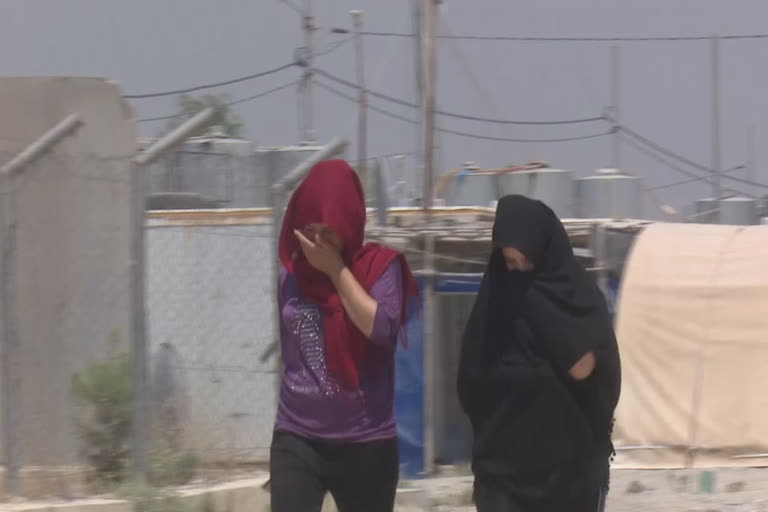Dohuk: Yazidi women who were kidnapped and forced to marry the Islamic State (IS) militants in Syria were compelled to abandon the children they had there if they wish to return to Iraq. Yazidis are an ethnic Kurdish minority, indigenous to Iraq, Syria and Turkey.
They were recounting their ordeal in interviews with the Associated Press on the 5th anniversary of the IS attack on the Yazidi community in the Sinjar region, a Kurdish-speaking area of Iraq.
The militants shot the men and abducted thousands of women and children.
One of the girls, Nadia was 13 when she was taken, along with her sisters and brothers, and sold into slavery.
She was then made to marry an IS fighter in the militant stronghold of al Mayadin in Syria. She had three children with him.
But when IS was defeated and she was able to leave, she was forced to abandon the children in an orphanage supervised by the Syrian Democratic Forces.
Nadia's eldest son was two years and four months old, the second one was fourteen months old and the last one was merely four months old when she left them.
"I changed their clothes and fed milk to the little one, once she was fed she would be quiet. The other little one, Juaidiyah is her name, she was crying a lot for me," told Nadia, adding, "Even when I went to the bathroom she would follow and cry for me. She was very attached to me. I left her crying, also. I bought clothes, boots, and everything for him (referring to her eldest child). He was running to pick up his boots and telling me: 'mummy; take me with you to the car, mummy take me to the car'. I told him; 'ok, ok I will take you in a bit'. I left him crying for me too, but they will forget me. They are still very young. They will forget me."
Nadia now lives in a small village in northern Mosul and is hoping to join her mother and other sisters in Germany. Her three brothers are missing.
Najiyah is another young Yazidi mother who left behind a child fathered by an IS militant in Syria.
She said that when she had the opportunity to leave the IS stronghold where she had been living, her child was taken from her by the mainly-Kurdish People's Protection Units.
Najiyah said, "I cried and screamed with all my strength, but it didn't help at all."
She is now living in the Kabartu refugee camp in the Dohuk area of Iraq's Kurdistan region.
Five years on from the day their community was devastated in the Iraqi town of Sinjar, Yazidi leaders say they live in disarray, mostly in camps, and with no security in their villages that still lie largely in ruins.
Read also: Despite police warnings mass protests continue in Hong Kong



